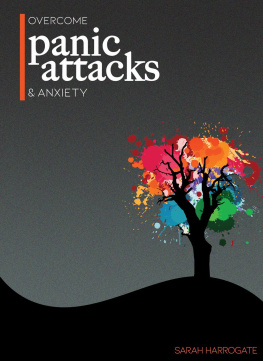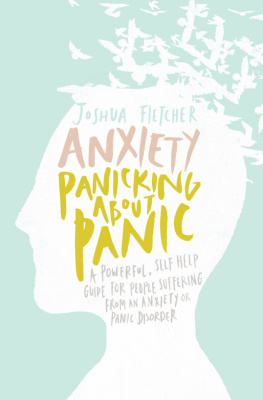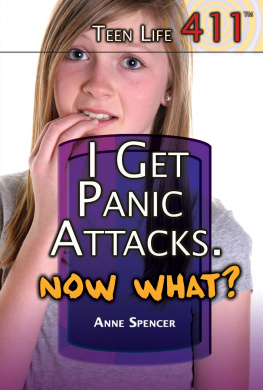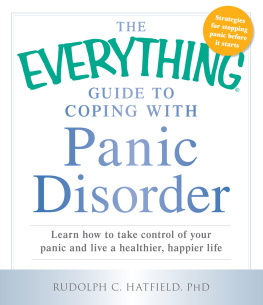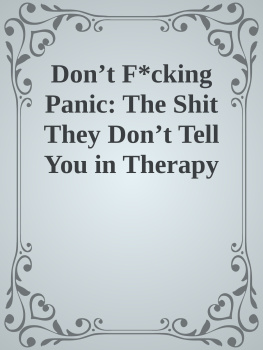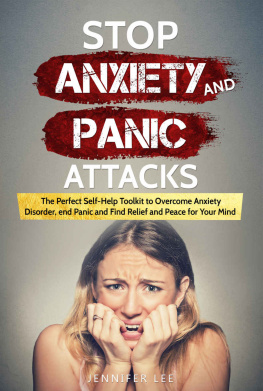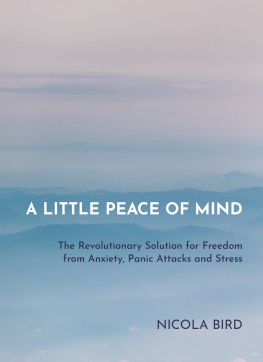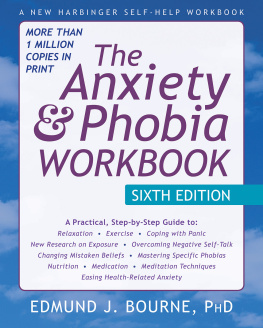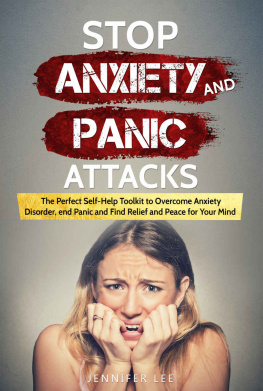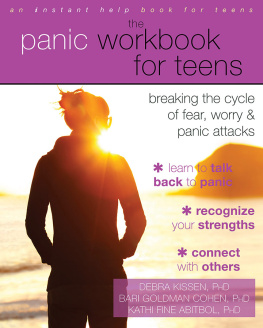
How I Turned a Worried Mind into My Best Friend
By Dan Ryckert
@2015 Up To Something Publishing
Introduction
Im as far removed from being a doctor as a human being can possibly be. I went to college for the most slacker-y of slacker majors (Film Studies), and it still took me five and a half years to actually get a degree. After graduating, I went on to early jobs at a local television station and a GPS company before eventually landing dream jobs where I play video games and talk about them for a living. None of my educational or vocational history points towards expert knowledge of the workings of the human mind, but a couple of pesky psychological conditions taught me that I better learn more about them if I didn't want to become a victim of them.
While I'm not a doctor, my 12-year battle with panic disorder and generalized anxiety disorder (along with a fun sprinkling of OCD and ADHD) has placed me in offices with many of them. I've been tested by MDs, spent countless hours speaking with psychologists, sat in chairs with needles in my head, tried various medications and herbal supplements, joined mental health message boards, discussed my problems with support groups, and tried many more things in the relentless pursuit of understanding and easing my anxious mind. Without a doubt, it has been the most difficult thing I've ever been through in my life.
Despite this, I sit here in 2015 happier and more successful than I've ever been. It's taken a dozen years, but all of those different approaches I've tried have left me with an assortment of techniques and reminders that keep me sane, healthy, and optimistic. I have a job that's been my dream since I was nine years old. I have a positive disposition that's virtually never compromised. For at least half a decade now, each year of my life has been significantly more enjoyable and fulfilling than its predecessor. In an odd way, I owe much of if not most of this to my struggle with anxiety.
It's a safe bet that many of you are familiar with my work online, whether it's from Giant Bomb, Game Informer, or Twitter. On the internet, I rarely speak up about serious subjects. Discussing things like my anxiety issues can be tricky, and it takes me out of my comfort zone. That's part of why I'm writing this book. Identifying something that scares you and tackling it headfirst regardless is one of the many approaches that I've found to help. Because of this, I've turned my initial hesitance to talk about this subject into a reason that I have to write it. Talking about these issues is an important step to recovery, and I hope that reading about my experiences and successes in the realm of anxiety disorders will be of help to others that haven't yet attained a firm grasp on them.
Most of this book is a chronological history of my experience with anxiety disorders. It starts with my first panic attack in 2003, and moves on to cover my college years of struggling to find ways to combat panic disorder and generalized anxiety disorder. Later, you'll learn about my slow realization of which methods worked for me and which didn't. My years of experimenting with a variety of remedies eventually paid off, as the strategies I taught myself prepared me for my jobs in the gaming industry. In the final chapters, I'll break down my most important tips for quick reference.
It took me twelve years to get to this point of having a relatively anxiety-free life. I hope that by discussing how I got here, I can provide some tips on how to accelerate your own process of eliminating anxiety. Your solutions may differ from mine, but this book will give examples of positive mindsets and methods that should apply to anyone even if my path isnt exactly the same as yours. In addition, I hope that this is a book that you can give to family and friends that struggle to understand what it's like to live with anxiety disorders.
Anxiety is a chronic condition. At no point in my life can I climb a hill and confidently yell "It's over!" It will be with me until the day I die, but I've learned how to harness it as a positive force instead of being burdened by the difficulties it comes with. It's my hope that as you read this book, you'll identify with many of these struggles and find benefit from the same approaches that have changed my life for the better.
The Beginning
My full-blown anxiety disorders didn't go into effect until a specific moment at the beginning of 2003, but evidence of me being a high-strung kid had long been present. I was socially awkward throughout all of my pre-college schooling, leading to plenty of name-calling and punches being thrown my way for years. I was a kid that was obsessed with video games and professional wrestling, couldn't talk to a girl to save my life, and never went to any school functions or parties. This wasn't unique to me, as it's a common story among many kids whether they were destined to develop anxiety disorders or not.
Despite never feeling fully comfortable in these early years, I had never experienced a panic attack, nor had I any knowledge of them. While my first panic attack was still months away, I entered a college preparatory program in the summer of 2002 with a great deal of nervousness. I had graduated high school in May of that year, and my mother convinced me to enroll in a one-month "Freshman Summer Institute" program that would prepare me for the full transition to come in the fall. It was a bite-sized version of a real college semester, requiring me to live in the dorms and attend a couple of summer classes.
This was my first time being forced out of my long-established comfort zone of playing video games at home on a near-nightly basis, and I can't say I handled it particularly well. I lived on campus in Lawrence, Kansas, which was only half an hour from my childhood home in Olathe. It may have been a stone's throw from the familiarity of home, but the forced social interaction made it feel like I might as well have been stationed in Siberia. Within a week, I was pacing in the lobby of the dorms, explaining to my parents on the phone that I had nothing in common with my peers. They drank and smoked pot, they listened to music I didn't like, and yet they all seemed happy to be there and had an instant kinship with each other. In retrospect, they probably harbored many of the anxieties I felt at that pivotal moment in our lives, but they did a much better job of hiding it. In my mind, I didn't belong there and I dreaded the years to come as I continued transitioning into the real world.
Early on, I found respite in the two classes that I was enrolled in. I never really enjoyed sitting in classrooms (and that feeling intensified as time went on), but it was a setting that I was at least familiar with. One was a basic introduction to the university and college life, and the other was Psychology 101. The latter was taught by a friendly, middle-aged professor named Buddy, and I hung around after most classes to chat with him. As a kid, I always felt more comfortable speaking with adults than with those my own age, and that had apparently carried over into (almost) adulthood. He always struck me as a genuinely happy person, so I enjoyed hearing his thoughts on life and how the mind works.
Because of Buddy's obvious intelligence and positive disposition, I gave something a chance that I normally wouldn't have. One day in class, he started talking to us about meditation. I knew nothing about it, and had always just assumed it was some pseudo-religious thing that hippies did while repeating weird chants. But because of how much I respected Buddy, I temporarily shut down the "this is a bunch of hippie crap" alarm that was blaring in my head, and I gave it a shot. He had the entire class close their eyes, and guided us through a simple meditation for ten minutes. He instructed us to focus on our breath as it moved in and out, and had us direct it to specific parts of our body in sequence (feet, calves, thighs, stomach, etc).
Next page

